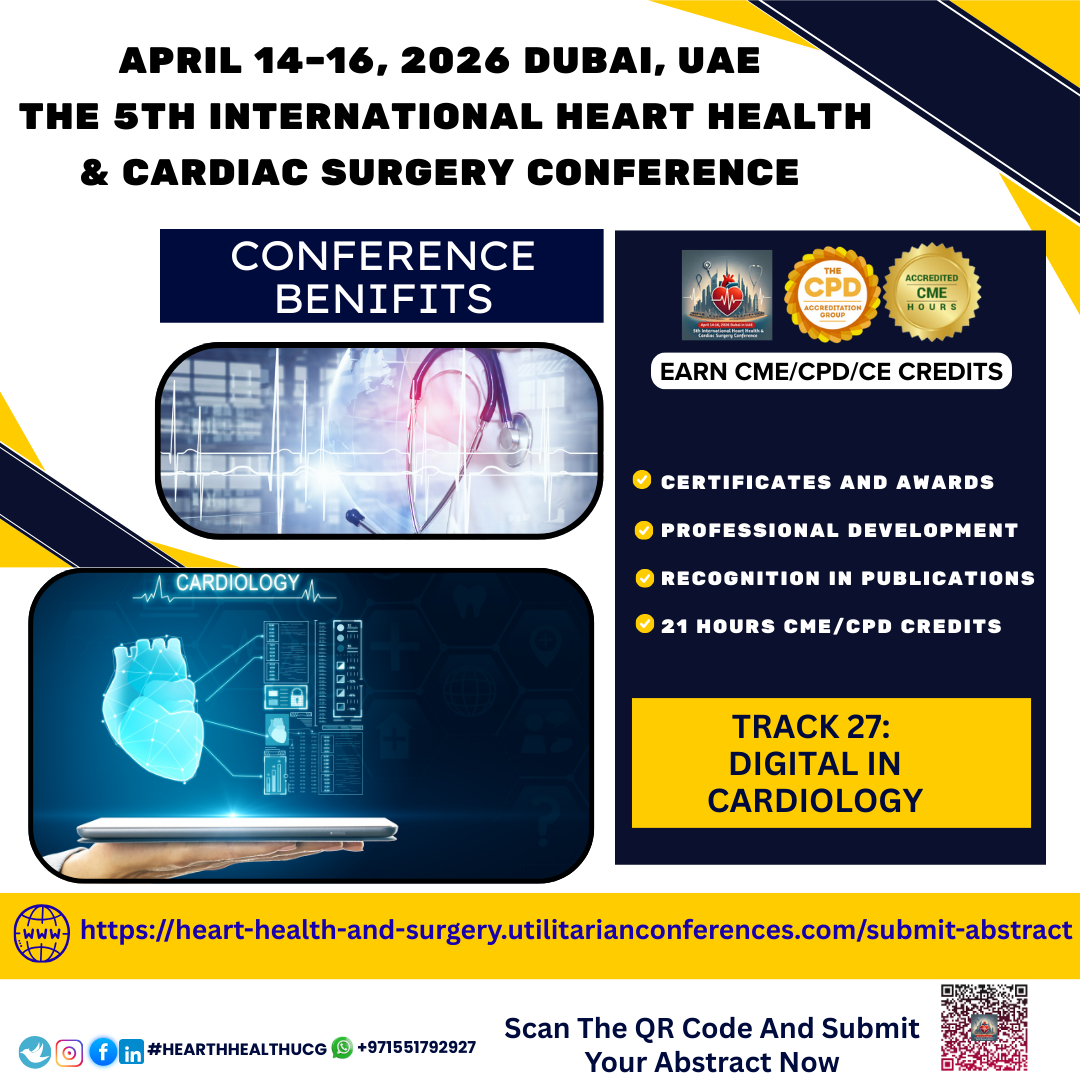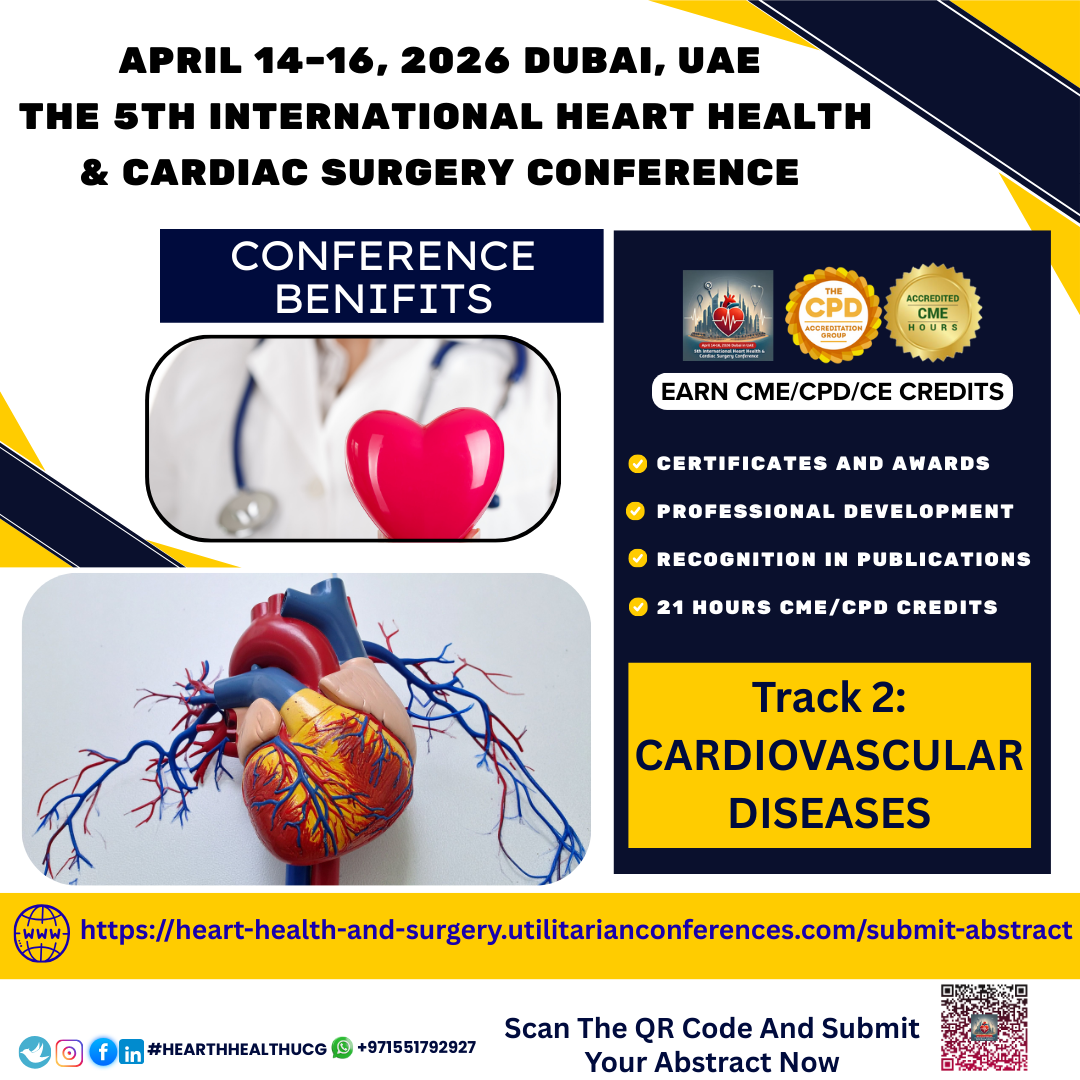



Heart Health is a broad and essential topic that refers to maintaining the...

Cardiovascular diseases (CVDs) are the leading cause of death globally,
claiming an estimated 17.9...

Title: Digital Health in Cardiology: Transforming the Future of Heart Care
Cardiovascular diseases remain the leading cause of death globally, demanding smarter, faster, and more proactive healthcare solutions. In response, digital health technologies have revolutionized the landscape of cardiology, offering tools that enhance diagnosis, personalize treatment, and empower patients. From wearable monitors to AI-driven diagnostics, digital innovation is no longer a futuristic concept—it is today’s reality. In this blog, we explore how digital health isNreshaping cardiology and what the future holds.
1. The Digital Shift in Cardiac Care The rise of digital health—the convergence of digital technologies with healthcare—has enabled cardiologists to monitor, prevent, and manageheart diseases more efficiently. These advancements support both clinical decision- aking and patient self-management, leading to better outcomes and reduced hospitalizations.
2. Wearables and Remote Monitoring
Smartwatches, fitness trackers, and patch-based ECG monitors have become crucial tools for continuous, real-time heart monitoring. They help detect: Atrial fibrillation (AFib)
Arrhythmias
Abnormal heart rates
Early signs of heart failure
These devices transmit data to healthcare providers, enabling early intervention and reducing the need for in-person visits—a boon for chronic cardiac patients, especially in rural or remote settings.
3. Telecardiology: Care Without Borders
Telecardiology bridges geographical gaps by enabling cardiologists to consult, diagnose, and treat patients remotely. It allows:
Video consultations for follow-up care
Rapid ECG interpretation from distant locations
Rural access to expert cardiac opinions
This is particularly vital in low-resource areas, where cardiac specialists may be scarce.
4. AI and Machine Learning in Cardiology Artificial intelligence (AI) is playing a transformative role in:
Image interpretation (e.g., echocardiograms, CT scans)
Predictive modeling for heart attack or stroke risk
Decision support systems for treatment planning AI-driven algorithms can detect subtle patterns in ECGs or imaging that may go unnoticed by the human eye, enhancing both accuracy and efficiency in diagnosis.
5. Mobile Apps for Heart Health Management Cardiology-focused mobile apps support patients in:
Monitoring blood pressure and cholesterol
Tracking medication adherence
Managing lifestyle factors (diet, exercise,
stress)
Many apps integrate with wearables, providing holistic views of patient health and offering real-time feedback or alerts to both users and providers.
6. Big Data and Personalized Cardiac Care Digital health tools generate massive amounts of health data. When analyzed using big data techniques, these insights help:
Identify at-risk populations
Personalize treatment plans
Inform public health policies
This data-driven approach moves us closer to precision cardiology, where treatments are tailored to an individual’s unique physiology and risk profile.
7. Challenges and Considerations
Despite the promise, digital health in cardiology faces hurdles:
Data privacy and security: Protecting sensitive health information is paramount.
Digital literacy: Older adults or underserved populations may struggle with technology.
Integration with clinical workflows: Systems must be seamlessly embedded into existing healthcare infrastructure.
Overcoming these barriers requires collaboration among clinicians, tech developers, regulators, and patients.
8. The Road Ahead The future of cardiology is undeniably digital. Innovations such as smart implants, AI-assisted robotic surgeries, and virtual cardiac rehabilitation programs are already emerging. With continued investment and ethical implementation, digital health will not onlyimprove heart disease management but also help prevent it altogether.
Conclusion
Digital health is no longer a supporting actor in cardiology—it’s becoming the main stage. From wearables and AI to telecardiology and personalized care, these tools are making heart care more accessible, accurate, and proactive. As technology continues to evolve, so too will our ability to detect, treat, and prevent cardiovascular disease—ultimately saving lives and improving quality of life.